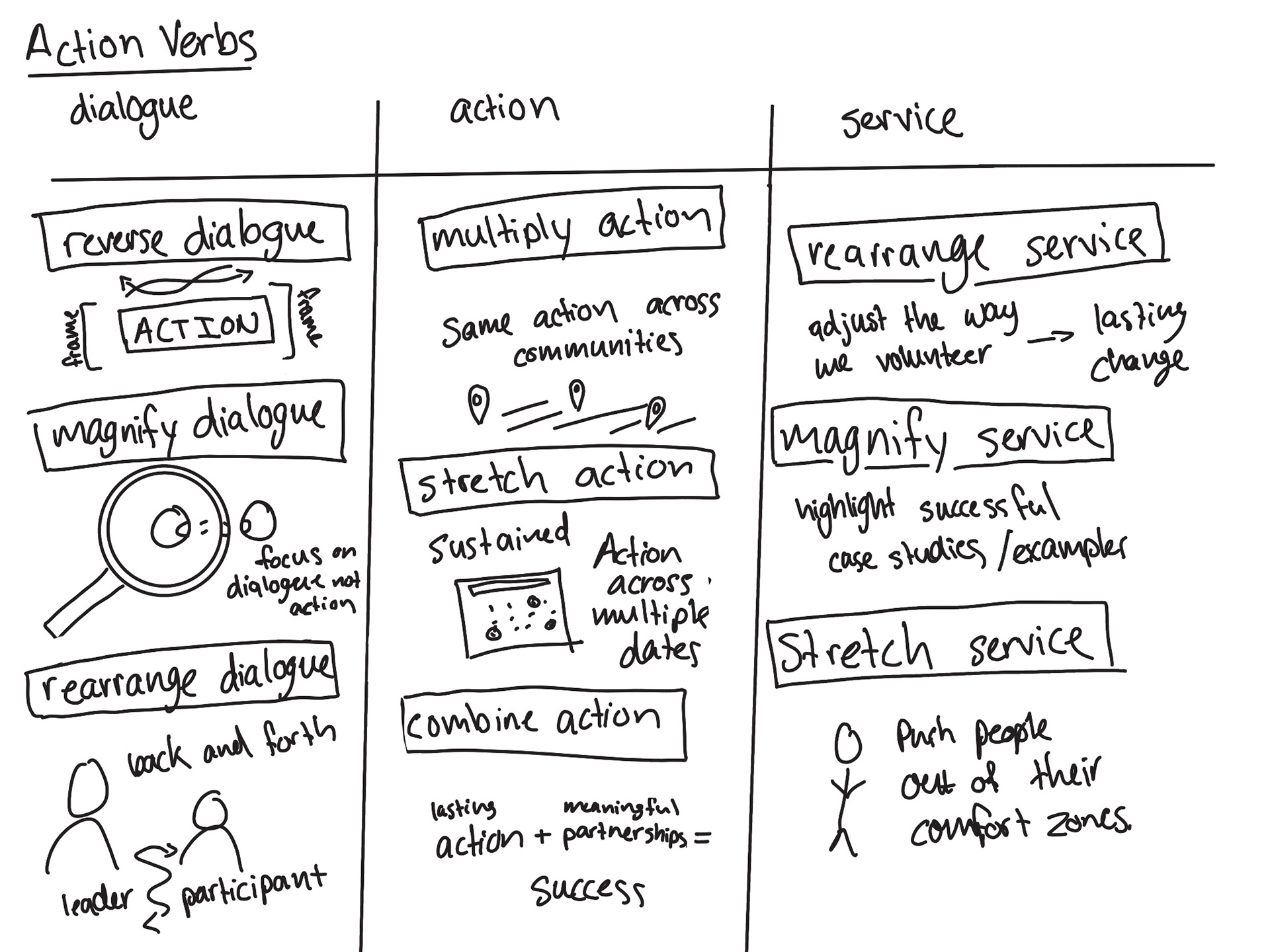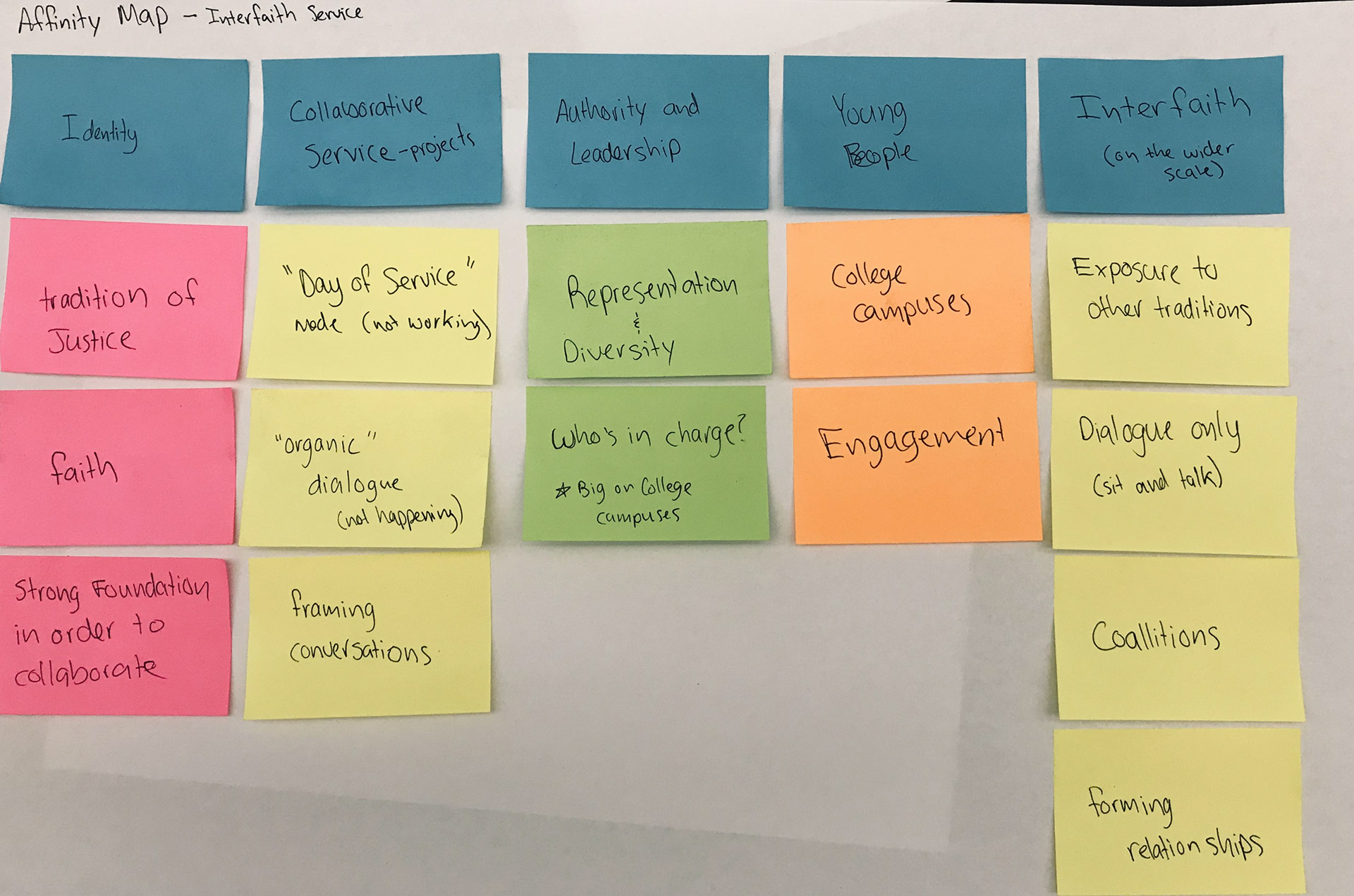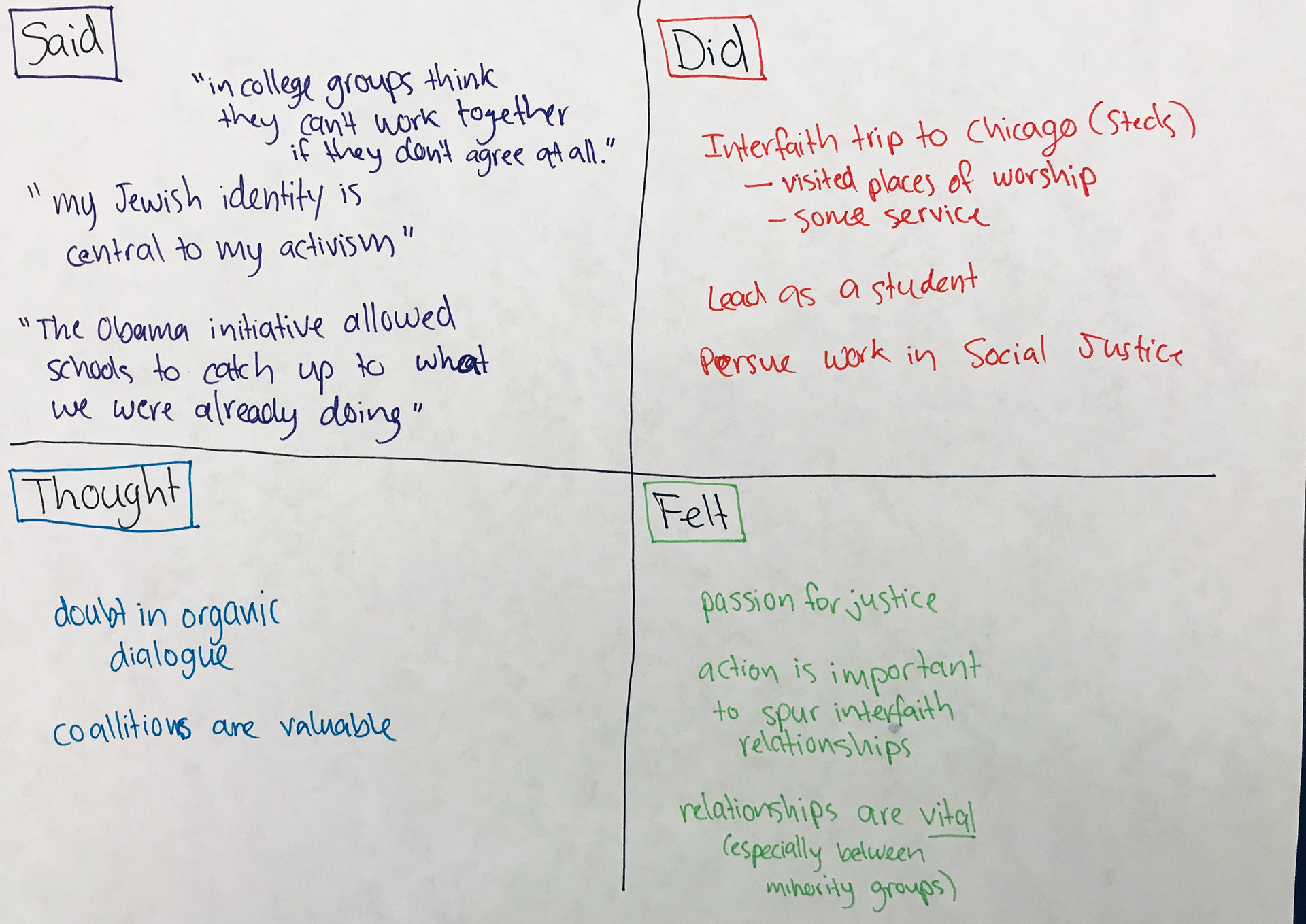Vision
Interfaith social justice initiatives are productive when both the individuals involved form meaningful interfaith relationships and when the world benefits from the action taken in a lasting way.
Issue
The “Day of Service” model for young people involved in interfaith service is ineffective in forming relationships and in changing the world. Organic dialogue doesn’t always happen and there isn’t always framing in place to foster the dialogue that leads to strong interfaith relationships. Additionally, without setting intention for service, it is unlikely to have deep roots or lasting power.
Method
In order to solve this problem, I used design thinking, first by empathizing with those involved in interfaith communities to define the problem of non-meaningful experiences. Next I ideated in order to solve this problem, prototyped and tested my ideas with an expert in the field of interfaith programming, and finally refined the solution based on suggestions of the expert.



Solution
The solution to this problem lies in the way participants and leaders talk with one another before, during, and after interfaith service experiences. With intentional framing in place, it is not necessary to hope that dialogue happens organically. Structured dialogue ensures that steps towards meaningful relationships and lasting service take place. In order to encourage this structure, I created the structure for a toolkit of resources that provides instruction on how to have meaningful discussions surrounding interfaith service work.

